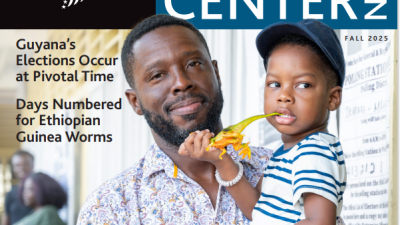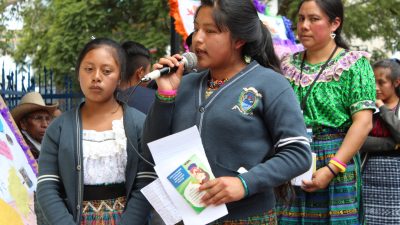News
We invite you to browse our latest news. Some external links below may require a subscription.
The Carter Center Reaffirms Commitment to the Declaration of Principles for International Election Observation
Carter Center News Fall 2025

Apply Today: Women’s Resilience in Environmental Stewardship and Empowerment (SheRise) Subawards – Zambia (RFA)
Rice University’s Baker Institute and The Carter Center to Host Annual Elections Conference in Houston
Survey: Chinese Public Divided About Seeking Global Dominance
Jason Carter interview on CNN’s ‘Erin Burnett OutFront’

The Carter Center Urges Guyana’s Political Parties to Submit Campaign Finance Reports
Carter Center Statement on Maria Corina Machado Receiving the 2025 Nobel Peace Prize
Carter Center Statement on Gaza Ceasefire Announcement
Carter Center Expands Global Inform Women, Transform Lives Campaign to 13 New Cities

1 of 106
Global Impact Starts with You
Your support sustains the Carter Center's mission of waging peace, fighting disease, and building hope around the world.

